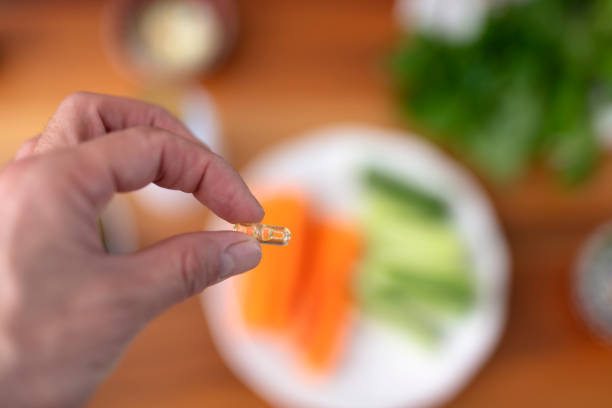Neuroplastic Nutrition: Feeding Your Brain for Cognitive Resilience
Can the foods you eat reshape your brain? Emerging research suggests that our dietary choices may have a profound impact on neuroplasticity, the brain's ability to form new neural connections and adapt throughout life. This groundbreaking field of neuroplastic nutrition is revolutionizing our understanding of brain health and cognitive function.

Recent studies have shown that certain foods and nutrients can influence the production of neurotrophic factors, proteins that support the growth, survival, and plasticity of neurons. Brain-derived neurotrophic factor (BDNF), in particular, plays a crucial role in neuroplasticity and has been linked to improved cognitive function, memory, and even mood regulation.
Key Nutrients for Neuroplasticity
Several nutrients have emerged as potential neuroplasticity boosters:
Omega-3 fatty acids: Found abundantly in fatty fish, these essential fats are crucial for maintaining neuronal membrane fluidity and supporting synaptic plasticity.
Flavonoids: These plant-based compounds, present in colorful fruits and vegetables, have been shown to increase BDNF levels and promote neurogenesis, the formation of new neurons.
Curcumin: The active compound in turmeric has demonstrated neuroprotective properties and may enhance neuroplasticity by increasing BDNF production.
Resveratrol: This polyphenol, found in red grapes and berries, has been linked to increased BDNF levels and improved cognitive function in animal studies.
Choline: Essential for the production of acetylcholine, a neurotransmitter involved in memory and learning, choline is found in eggs, liver, and cruciferous vegetables.
The Neuroplastic Diet: Beyond Individual Nutrients
While individual nutrients play important roles, the concept of neuroplastic nutrition extends to overall dietary patterns. Researchers are investigating how different eating styles may influence brain plasticity and cognitive resilience.
The emerging neuroplastic diet emphasizes a plant-rich, whole food approach with a focus on:
-
Diverse plant foods to ensure a wide range of phytonutrients
-
Healthy fats from sources like avocados, nuts, and olive oil
-
High-quality proteins, including fatty fish and plant-based options
-
Limited processed foods and added sugars
-
Mindful eating practices to enhance the brain-gut connection
This dietary approach not only provides the necessary nutrients for neuroplasticity but also supports overall brain health by reducing inflammation and oxidative stress.
Timing Matters: Chrono-Nutrition and Neuroplasticity
An intriguing aspect of neuroplastic nutrition is the potential influence of meal timing on brain plasticity. Chrono-nutrition, the study of how the timing of food intake affects metabolic processes, may have implications for optimizing neuroplasticity.
Preliminary research suggests that aligning eating patterns with our circadian rhythms could enhance the brain’s plasticity. For example, limiting late-night eating and ensuring a longer overnight fasting period may support the brain’s nighttime “cleanup” processes, potentially boosting neuroplastic potential.
Challenges and Future Directions
While the field of neuroplastic nutrition holds great promise, it’s important to note that much of the research is still in its early stages. Many studies have been conducted in animal models, and more human trials are needed to fully understand the implications for cognitive health and resilience.
Additionally, individual variations in genetics, gut microbiome composition, and lifestyle factors may influence how different people respond to neuroplastic nutrition strategies. This highlights the need for personalized approaches and further research into the complex interplay between diet, genetics, and brain plasticity.
Neuroplastic Nutrition in Action: Practical Tips
-
Embrace color on your plate: Aim for a rainbow of fruits and vegetables to maximize flavonoid intake
-
Include fatty fish like salmon or sardines in your diet 2-3 times per week
-
Experiment with turmeric in cooking or as a supplement (with black pepper for better absorption)
-
Snack on berries and walnuts for a brain-boosting combination
-
Consider timing your meals to align with your natural circadian rhythms
-
Stay hydrated, as even mild dehydration can impact cognitive function
-
Engage in mindful eating practices to enhance the brain-gut connection
As we continue to unravel the intricate relationship between diet and brain plasticity, neuroplastic nutrition offers an exciting pathway to cognitive resilience and lifelong brain health. By nourishing our brains with the right nutrients at the right times, we may be able to unlock new levels of cognitive potential and adaptability. While more research is needed, embracing a diverse, nutrient-rich diet focused on whole foods is a promising step towards supporting our brain’s remarkable capacity for change and growth.





